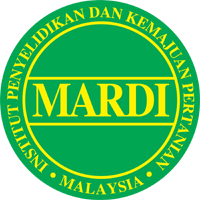J. Jurina, A. Noor Azizah, W.M. Siah and K. Ngadiman
Abstract
Active packaging is a new approach in food industry. The incorporation of active substances such as antioxidant into packaging materials will protect oxygen sensitive food products. A storage study was conducted to evaluate the effectiveness of butylated hydroxytoluene (BHT) impregnated film for maintaining the quality of vegetable crackers. Samples of vegetable crackers were packed in high density polyethylene (HDPE) films with 60 m of thickness, impregnated with two levels of BHT (0.05% and 1.0% w/w). Normal HDPE film packaging was used as control. All packs were heat sealed and stored at 27 oC ± 5 C with relative humidity of 70- 80%. Changes in quality during storage were determined by organoleptic evaluation and free fatty acids analysis as the indicator of rancidity. Vegetable crackers packed in HDPE film with 1.0% w/w of BHT remained acceptable up to 8 weeks storage. Those packed in film impregnated with 0.5% w/w BHT was acceptable at 7 weeks storage while crackers packed in normal HDPE was acceptable at 3 weeks storage.
Full Text (64 KB)








